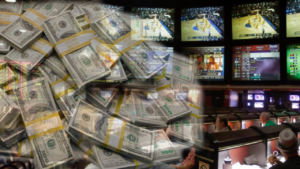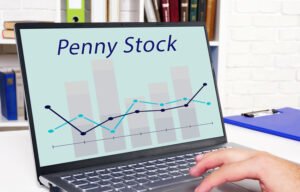Most Internet articles will point out that the bookies make their money off the ‘Vig’ or ‘juice’ or ‘margin’. If they follow standard American odds of -110 on a 50/50 bet, they are effectively making a 10% margin. So, yes, this is an important element in their profitability.
However, it is not the only element, otherwise, why would ‘sharps’ (profitable bettors) get limited? Why should the bookie care if you win or lose when he is getting his ‘’vig’ anyway? Clearly, there is more going on here.
Hedging
In banking and stock market trading, there is a concept of hedging. In theory, a bank does not want to run the risk of suffering major losses because of Interest rate increases. It, therefore, becomes important to try to match their assets and liabilities as much as possible. This applies to both fixed and variable interest rates. So, in theory, one would expect that the ‘gap’ between the assets is ‘at risk’. It, therefore, needs to be ‘hedged’ in order to protect profits should interest rates increase or decrease. However, such hedging is expensive and is effectively throwing away profit as a form of ‘insurance’.
Therefore, a Bank operating sensibly (and not all do) will not blindly hedge every ‘gap’. Rather, they will carefully decide how and where to leave such gaps in the expectation that they can ‘manage’ any likely volatility in interest rates. In essence, it becomes an almost daily juggling act. This is examined over various forward-looking time frames ranging from today to 5/10 years’ time.
So, what has this ‘high finance’ got to do with sportsbooks? In fact, everything. On a daily basis each Sportsbook’s ‘trading team’ considers almost the exact same equations. To always hedge is less profitable (like the ‘hedging cost’ in the banking example). This means that a losing bettor is good for the sportsbook and a profitable one is not. Hence profitable players can find themselves with betting limits very quickly, with some sportsbooks being famously ‘mean’ in this regard. Bookie shops in the UK, where horse racing, in particular, can be profitable with the right insights, would regularly post pictures internally of ‘faces’ to be avoided. If one such face arrived in the shop, the shop would most likely immediately notify their competitors in the surrounding areas.
So, here are a few different ways that Sportsbook actually make their money.
- Vig or juice -they make 10% standard off all volume
- Line adjustments. Any regular bettor will know that the perceived ‘fair odds’ of -110 are rarely the actual price There is more than Vig in the prices. In fact, a cursory look at the lines in any line comparison site will show you that pricing can range by a minimum of 10% on major markets and as much as 50% on minor markets. See our article on line shopping here. This tells you that Sportsbooks are making additional margin on many of their lines well beyond the basic 10%
- Limiting profitable bettors and maximizing losing ones. This is the reality of the industry. It is among the reasons there is a somewhat adversarial nature to the relationship between the sportsbook and their clients. This played out under the surface and becomes very obvious once a bettor becomes significantly profitable.
- Encouraging loss-making bets. This is now very common in the US market as Fan Duel, in particular, has led the parlay market. Parlays are popular because of their ‘lotto-like’ chance to win a lot. However, for the majority, they are a very risky bet and mostly loss-making. Hence, the Sportsbooks are pushing such betting as their regular promotions will indicate. See our article on parlays here.
- The ‘house’ bets– it may decide not to fully match action not just for the avoidance of the implicit ‘hedging cots’, but also because they believe they should actually take part in some of the action to a certain degree. Maybe the trading team sees a lot of ‘sharp’ action going against the public, where the higher volume is. The House might decide to stay on the ‘sharp’ end and not balance further their books (e.g. by promoting the other side of the action via aggressive odds/line movements). This is why a betting technique has developed around ‘reverse line movement’ (odds and public money going in opposite directions)
So, that must mean that all sportsbooks are very profitable?
Again, this might be a common perception, but the reality is more complex. The cost of acquiring customers is very expensive to sportsbooks. Current minimums of $500 for each customer in the US market. All those promos of $500 risk-free bets are great value for the customer but loss-making for the sportsbooks. Of course, Sportsbooks hope you will become an active user and eventually recover this cost from you. However, not all do. Here are a few ways that Sportsbooks can lose money in the short and long run-
- As in any mainstream marketplace, only the dominant 3 to 5 players will make a decent return. That is the case in the European and International markets. Hence, the race is on in most US States (where legalized) to become one of the bigger players. This is the reason behind the aggressive new player promotions.
- However, in reality, in marketplaces such as Colorado and New Jersey with well over 20 players, at least 50% will never reach the scale necessary to cover all of their fixed costs and become a long-term profitable business. Expect many to drop out in the future
- In the shorter term, Sportsbooks can be subject to ‘bonus abuse’. Overly savvy customers make sure they maximize all Sportsbook Opening offers but never go on to use the apps regularly
- Similarly, many savvy customers regularly ‘line shop’ to always get the best lines, thus minimizing the margin they pay over to the sportsbook
- Many smart bettors can become profitable in the long run. This can cost the sportsbook profits because of their desire to not always ‘fully hedge’.




